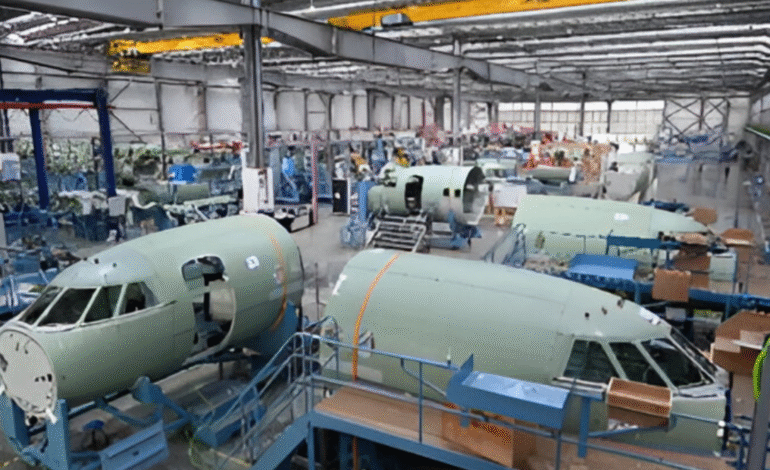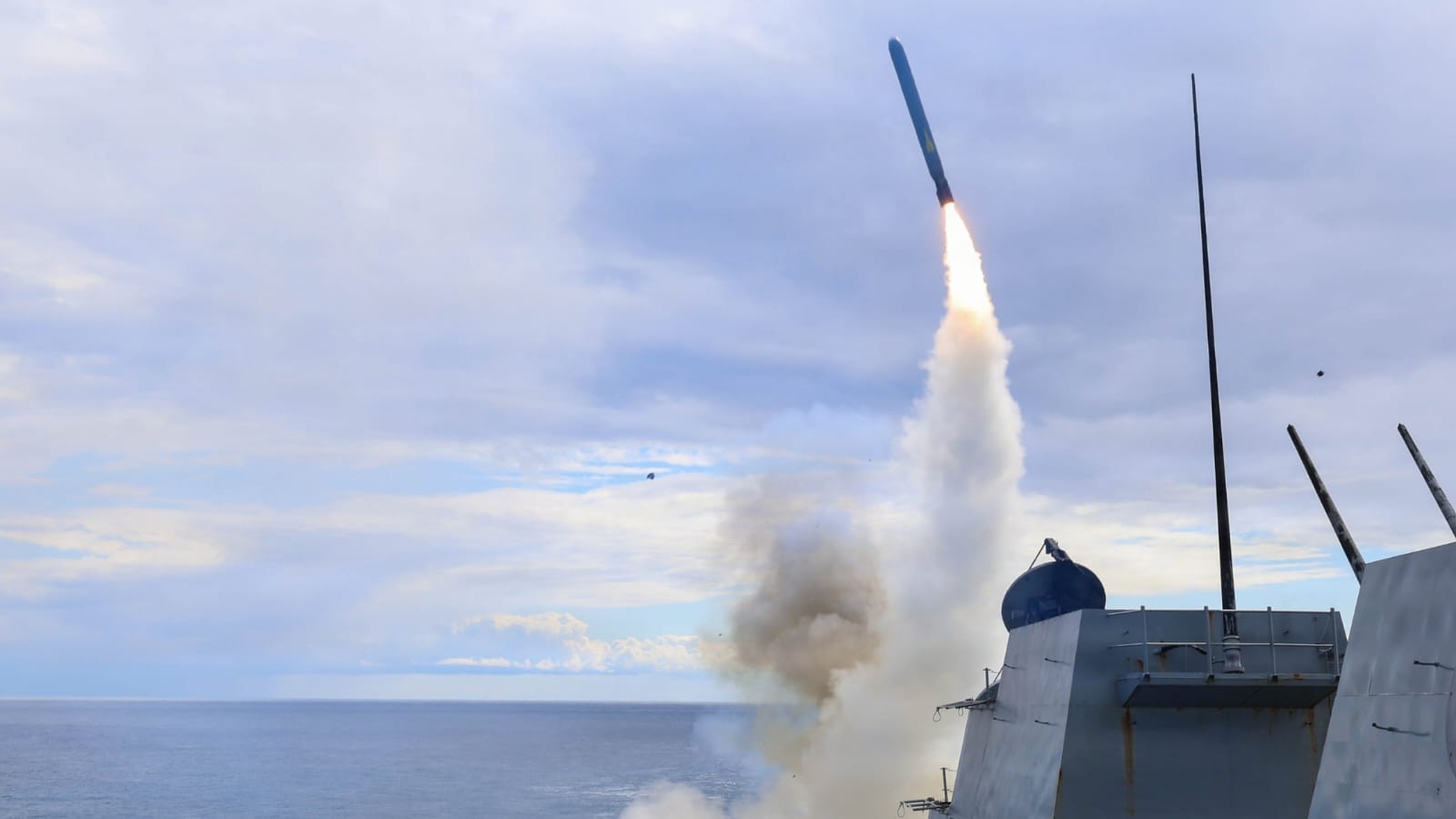Reliance Defence Aerospace Launch: ₹10,000 Cr Jet Dream by 2028

Reliance Defence Ltd, the aerospace and defence arm led by Anil Ambani, has taken a monumental leap in India’s aviation landscape by announcing a ₹10,000 crore investment over the next ten years. This bold move is designed to place India on the map as a global aerospace manufacturing hub. The company’s top priority within this plan is to manufacture India’s first domestically developed commercial passenger jet by the year 2028. This milestone would mark a turning point for India’s engineering and aviation capabilities, showcasing the country’s ambitions of becoming self-reliant in a space currently dominated by global giants like Boeing and Airbus.
This massive investment is not limited to passenger aviation. Reliance Defence is also venturing deep into the business jet segment through a landmark collaboration with France-based Dassault Aviation. The plan is to manufacture Falcon 2000 business jets in Nagpur, Maharashtra making this the first time in Dassault’s prestigious history that such a high-end aircraft will be assembled outside France. The move represents a significant strategic pivot not only for Reliance Defence but also for the Indian aviation manufacturing ecosystem as a whole. It signals international trust in India’s capability to deliver world-class aerospace solutions, with major implications for both commercial and defence aviation.
Strategic Global Collaborations Cement India’s Aerospace Growth Ambitions
Reliance Defence is not venturing into the aerospace sector alone. It is forging partnerships with some of the biggest names in the global defence and aviation landscape. Dassault Aviation, one of France’s most respected aerospace companies, has agreed to jointly manufacture the Falcon 2000 LXS jet in Nagpur. This partnership reflects a mutual commitment to long-term industrial growth, and the project is expected to bring technological innovation, employment, and global visibility to India’s aerospace infrastructure.
In addition to its tie-up with Dassault, Reliance Defence has entered into a joint venture with another French giant Thales SA. This collaboration, known as Thales Reliance Defence Systems, has been established to serve multiple defence aviation objectives. These include the upgrading of Mirage 2000 aircraft, already in operation with the Indian Air Force, and the development of logistics hubs for Rafale fighter jets across the country. Through this venture, Reliance Defence will gain access to advanced avionics systems and high-end defence engineering practices, which are crucial for India’s long-term strategic defence capabilities.
Funding the Future: ₹17,600 Crore Capital Strategy from Reliance Infrastructure
While the ₹10,000 crore aerospace project stands as a beacon of industrial ambition, Reliance Defence plans to partly finance this mega-investment through its parent company, Reliance Infrastructure Ltd. The funding strategy includes a ₹17,600 crore capital-raising plan, which is expected to be executed via multiple channels. Reliance Infrastructure will issue preferential shares to institutional investors, float foreign currency bonds to attract global capital, and monetize several of its infrastructure assets, especially nine of its existing road projects.
This approach reflects a structured and multi-pronged funding model, aimed at ensuring financial sustainability while diversifying investment risks. The monetization of infrastructure projects is particularly significant, as it aligns with the company’s broader vision of moving capital from mature sectors like roads to future-oriented industries such as aerospace. Through this strategy, Reliance Defence hopes to accelerate development without incurring excessive debt or over-relying on government subsidies.
Assembling the Falcon 2000 LXS: India’s New Role in Business Jet Manufacturing
A significant aspect of this aerospace expansion is Reliance Defence’s collaboration with Dassault Aviation to assemble Falcon 2000 LXS business jets in India. This project is particularly noteworthy because it represents the first time in history that Dassault will manufacture any of its aircraft outside of France. The decision to establish an assembly line in Nagpur not only enhances India’s role in global aerospace manufacturing but also promotes high-value job creation and technical training in the country.
The Falcon 2000 LXS is a long-range business jet designed for high-end corporate travel. Known for its superior speed, range, and cabin comfort, the aircraft is widely used by global business leaders and governmental agencies. With production moving to Nagpur, India will become a strategic center for elite business aviation, capable of supplying aircraft to clients across Asia, the Middle East, and beyond. The initiative will involve advanced assembly techniques, avionics integration, and rigorous quality control systems that are consistent with international aviation standards.
By involving Indian engineers, technicians, and supply chain vendors, the project will also promote local industry growth. Components such as landing gear, cockpit instrumentation, and interior fittings are expected to be sourced domestically, thereby giving a boost to India’s micro, small, and medium enterprises (MSMEs) in the aerospace sector.
Reliance’s Defence Upgrades: Enhancing India’s Legacy Military Fleet
Reliance Defence is also actively involved in upgrading existing military aircraft and helicopters in India. In collaboration with Genesis Aerosystems and the government-run Hindustan Aeronautics Limited (HAL), the company has already completed modernization projects for 37 Dornier aircraft used by Indian armed forces. An additional 18 aircraft are scheduled for upgrade, and Reliance is optimistic about winning contracts to refurbish over 800 legacy aircraft and helicopters in the future.
These upgrades include modern avionics systems, digital navigation tools, electronic warfare capabilities, and more reliable engines. The enhancements aim to extend the operational life of the fleet while improving performance, safety, and mission flexibility. The potential scale of these contracts would not only secure long-term business for Reliance Defence but also make a meaningful impact on national defence preparedness. By taking on this role, Reliance is positioning itself as a leading player in military aviation support, a space traditionally dominated by public-sector undertakings.
India’s Aerospace Sector Gears Up for ₹3 Trillion Milestone
According to projections by government and industry analysts, the Indian aerospace and defence sector is expected to touch ₹3 trillion in annual output by 2028–2029. This growth will be driven by indigenous manufacturing, export capabilities, and rising domestic demand across both civil and defence segments. Companies like Tata Group, Mahindra Aerospace, and Bharat Forge are also making significant investments in this sector, reflecting a collective industrial push towards self-reliance and global competitiveness.
Reliance Defence’s entry into this race with its ambitious ₹10,000 crore plan adds significant momentum. Its collaboration with global giants gives it a technological edge, while its domestic partnerships ensure scalability and local integration. With the government’s focus on ‘Make in India’ and rising defence allocations, the stage is well set for the country to emerge as a serious contender in the global aerospace market.
Middle East and UAE: Strategic Collaboration Opportunities Ahead
For readers and stakeholders in the UAE and wider Middle East region, this development in India’s aerospace journey opens up several exciting opportunities. As countries in the Gulf continue to expand their own aviation sectors, both commercially and militarily, India becomes an ideal partner. The UAE, in particular, has a rapidly growing demand for business jets, many of which include the Falcon 2000 LXS. With the jets now being assembled in India, regional buyers can expect quicker delivery schedules, cost advantages, and better after-sales support.
Moreover, the possibility of future joint ventures between Indian and Emirati aerospace companies becomes more likely. This could include research collaborations in avionics, AI-powered navigation, and military-grade logistics. Investments from Middle Eastern sovereign wealth funds in India’s aerospace clusters could also accelerate mutual growth. By aligning industrial objectives, India and the UAE can build a strategic alliance in the aviation and defence sectors that would be beneficial for both regions.
Challenges and Critical Success Factors Ahead
Despite the impressive blueprint, Reliance Defence’s journey toward aerospace leadership will not be without hurdles. The aerospace industry is one of the most highly regulated and quality-driven sectors in the world. Meeting international certification standards for new aircraft designs, particularly commercial jets, can take years and involves rigorous safety trials. Reliance Defence will need to demonstrate engineering excellence, testing capabilities, and quality assurance procedures on par with global benchmarks.
Another challenge lies in managing the complex supply chains required for large-scale aircraft manufacturing. Any delay in sourcing or assembling components could impact delivery timelines and cost efficiency. In addition, geopolitical considerations, especially involving international technology transfers, could impose restrictions on how much access Reliance Defence has to proprietary systems from its global partners.
Nonetheless, the company’s calculated capital structure, technical collaborations, and clear five-year roadmap provide a strong foundation. Success will depend on sustained execution, technological adaptability, and regulatory compliance.
A New Chapter for India’s Aerospace Ambitions
Reliance Defence’s ₹10,000 crore investment marks the dawn of a transformative chapter in India’s aerospace sector. By setting an ambitious goal to develop the country’s first commercial aircraft by 2028, and by pioneering global collaborations such as the Falcon 2000 assembly project with Dassault Aviation, Reliance is not just chasing a business opportunity it is shaping a national vision. The ripple effects of this initiative will be felt across India’s industrial landscape and far beyond its borders.
For the UAE and Middle East, this initiative provides fresh prospects for strategic alignment, business synergy, and joint technological ventures in the aviation domain. Whether it’s through shared R&D, procurement of aircraft, or aerospace investments, the opportunities for collaboration are substantial. As the countdown to 2028 begins, India’s skies seem destined for a bold new takeoff and Reliance Defence is helping to pilot that flight.








3 Comments
[…] India’s space history is poised to reach new heights this week as Group Captain Shubhanshu Shukla, the first Indian astronaut to board the International Space Station (ISS), prepares to return to Earth. His participation in the Axiom Mission 4 (Ax-4) represents not just personal glory, but a landmark achievement for India’s ambitions in human spaceflight, as the country readies itself for missions like Gaganyaan and the future Bhartiya Antariksha Station. […]
[…] The Middle East space race is heating up with countries like the UAE, Saudi Arabia, and Iran all launching ambitious space programs. However, Israel’s edge lies in its unique blend of defense-based satellite needs, long-standing engineering expertise, and strong public-private collaborations. […]
[…] bilateral defence ties, explored technology transfers, and promoted collaborative initiatives in defence innovation. His ability to balance regional alliances with global partnerships underscores his strategic […]
Comments are closed.